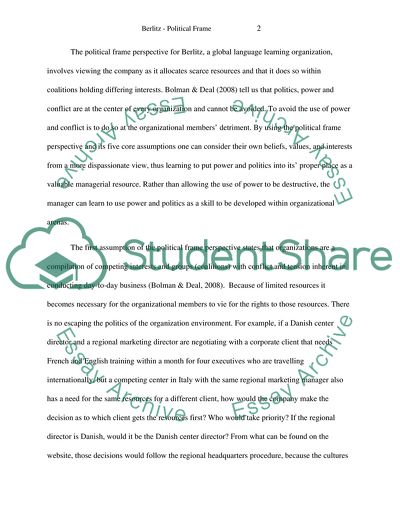The Political Frame Perspective for Berlitz Case Study Example | Topics and Well Written Essays - 1500 words - 1. https://studentshare.org/politics/1749794-political-frame-paper
The Political Frame Perspective for Berlitz Case Study Example | Topics and Well Written Essays - 1500 Words - 1. https://studentshare.org/politics/1749794-political-frame-paper.


